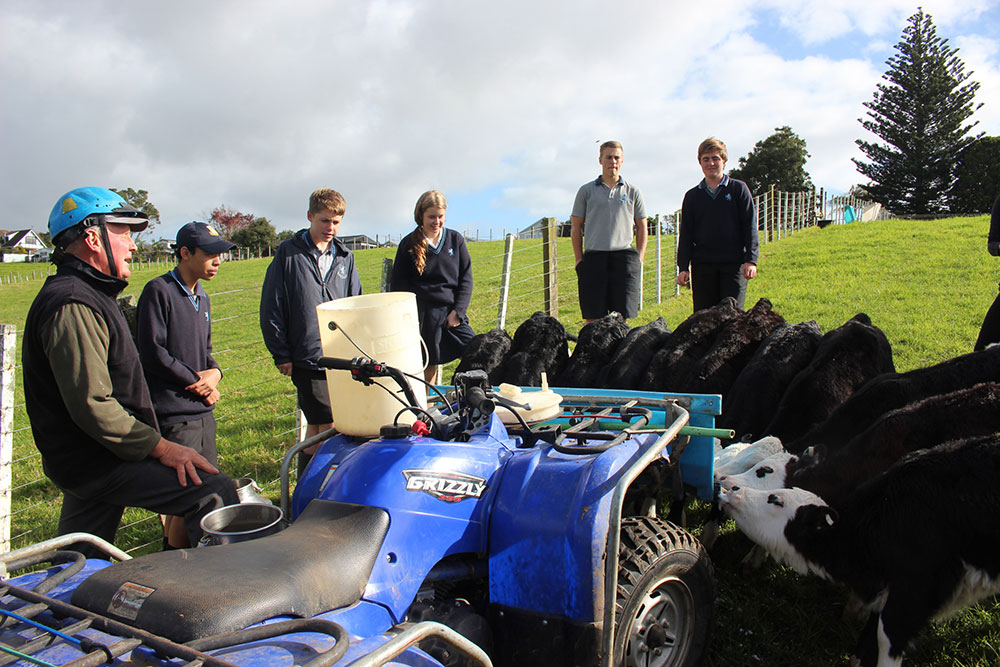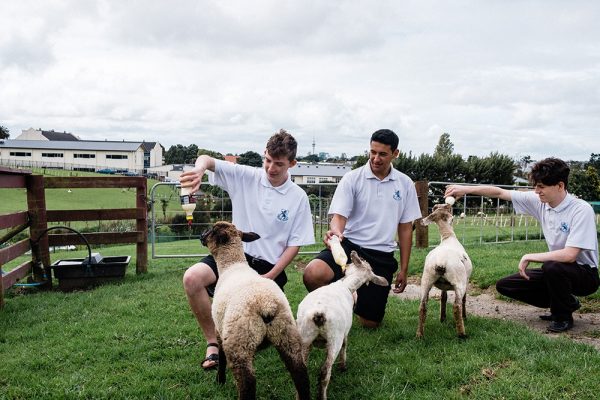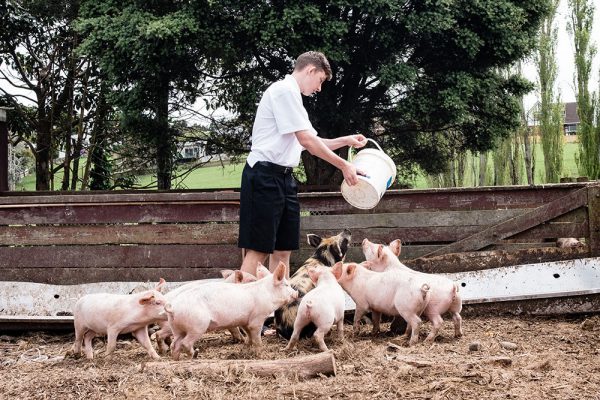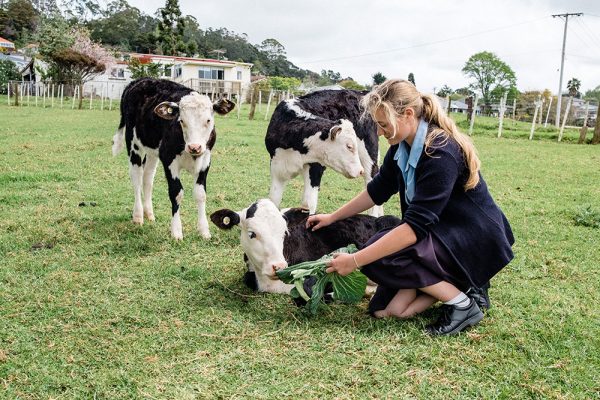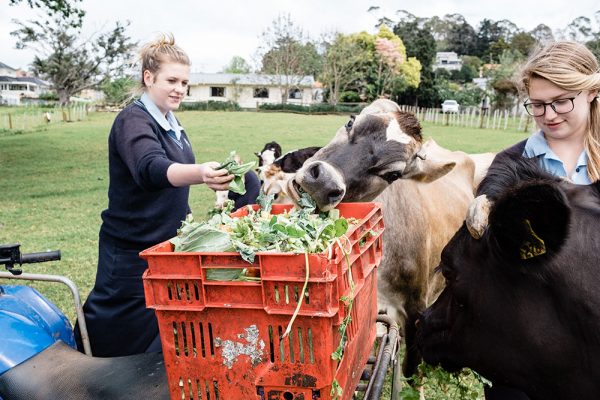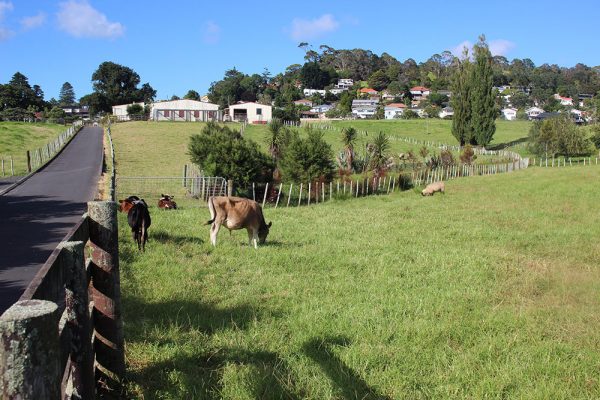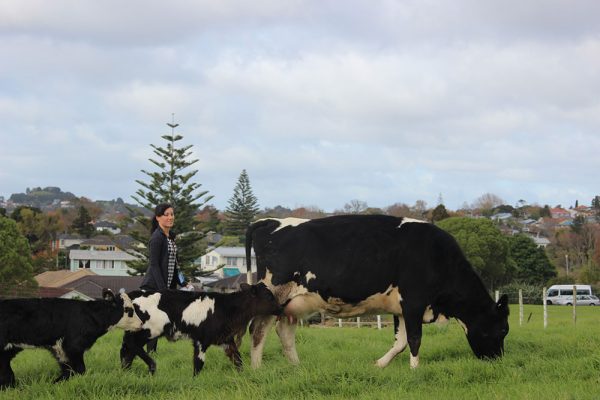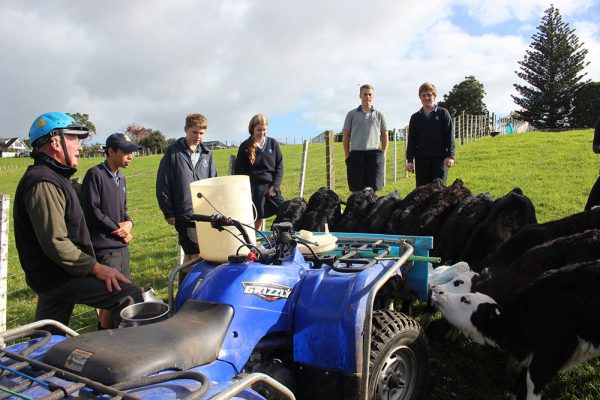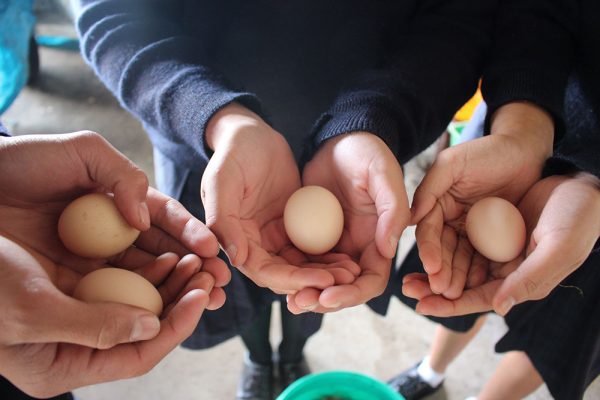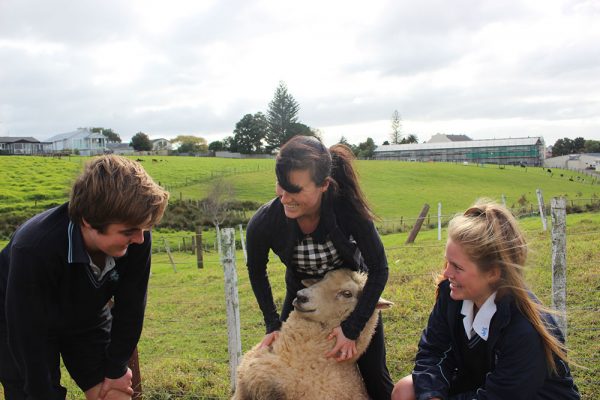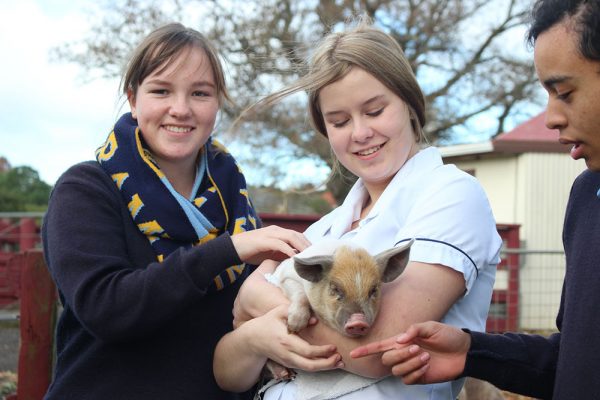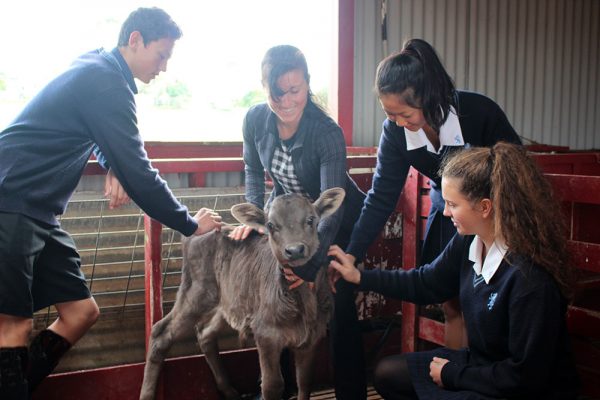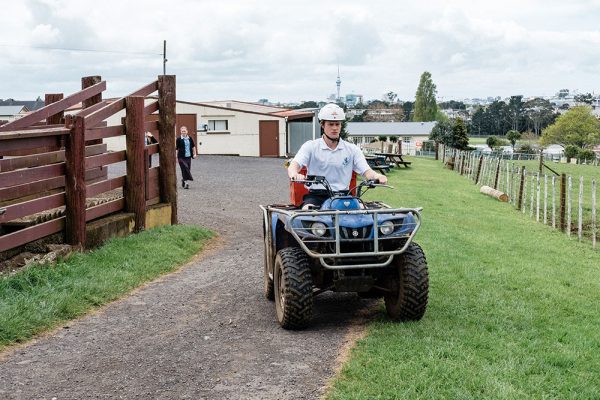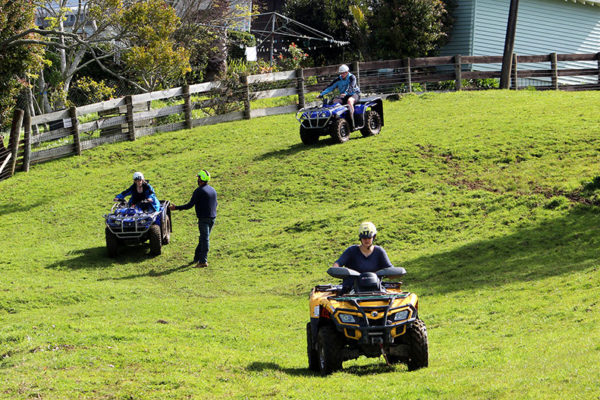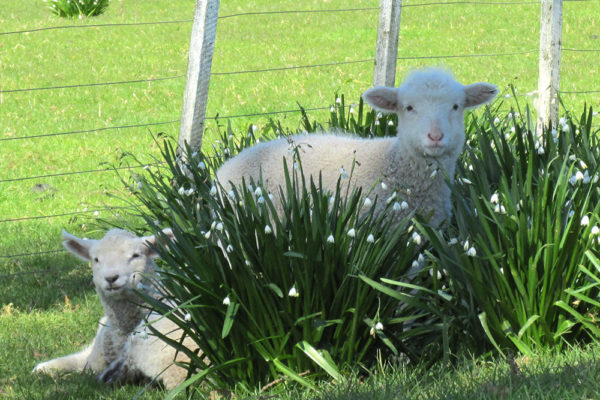Agricultural & Horticultural Science at Mount Albert Grammar works hard to enthuse our student population to follow a career path into the diverse and stimulating primary industries that keep our country afloat.
The farm is home to sheep, cattle, chickens and beehives, alongside the SunGold Kiwifruit orchard, Citrus tree orchard, raised garden beds, hydroponics and a vertical garden.
Agricultural & Horticultural Science is designed to provide secondary school students with the opportunity to build and develop skills through on-farm or on-orchard experience, while also gaining credits toward NCEA Levels 1-3. This enables students to tailor their Agricultural & Horticultural studies to meet their career goals through NCEA achievement standards. Pathways could include the growing of products on the land, or supporting roles in agriculture and horticulture, such as genetic development, veterinary services, sustainability and environmental monitoring.
Achievement Standard Agricultural and Horticultural Science
The achievement standard course studies pasture and crop management practices, geographic distribution of primary products, livestock and soil management practices, enhancing reproductive techniques, commercial management practices and land use.
Year 10 Agricultural and Horticultural Science
An Option subject that introduces students to the array of topics and areas of study through classroom-based theory lessons and practical sessions on the ASB MAGS Farm.
Year 11:
Management practices that impact on pasture/crop production. How primary production impacts on the environment. Geographic location of different types of primary production in New Zealand.
Year 12:
Students undertake an in-depth practical investigation. They explore management practices that affect plant and development, and study livestock behaviour and reproduction techniques.
Year 13:
Students undertake an in-depth investigation into the production of a New Zealand primary product. They look at marketability and factors that influence profitability. This course is agri-business based.
Career pathways:
Tertiary study in the agri-business or science fields to work in primary industry management, trade or scientific research, in the fields of sustainability and environmental monitoring, or for the range of businesses the work with primary industries, such as banks and engineering companies.

